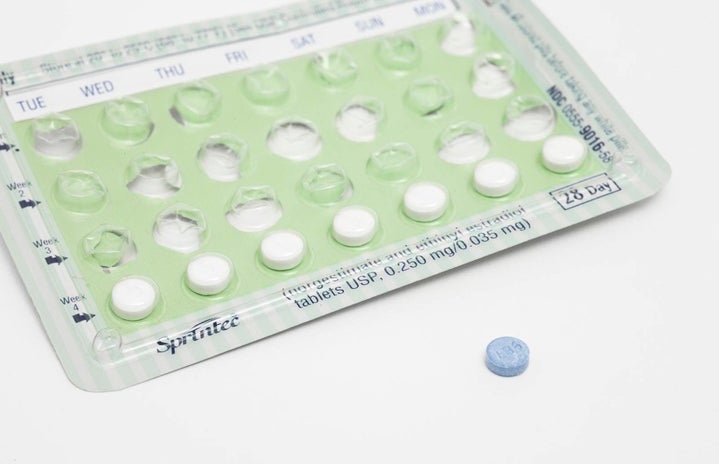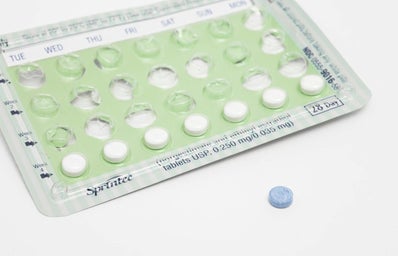The past few days have seen headlines filled with stories of countries suspending rollout of the AstraZeneca vaccine due to suspected increases in risks of blood clots. European countries including Germany, France, Spain, Italy, Denmark, Norway and Ireland have put the jab on hold, while others such as Estonia and Austria have paused certain batches of the vaccine.
The panic came after a small number of people who had recently had the vaccine were found to have blood clotting issues, including pulmonary embolisms and deep vein thrombosis, as well as some rarer forms of blood clots, such as those found on the brain. The UK government has been making concerted efforts to reassure people of the vaccine’s safety, while the European Medicines Agency say that the vaccine is ‘safe and effective’.
As the fears of blood clots saw the rollout of the AstraZeneca vaccine grind to a halt in these countries, many women have been prompted to ask why the urgency around the vaccine has never been felt around the increased risk of blood clots while on oral contraception. Women and activists on social media have been keen to point out that the risk of clots while on birth control is far higher than the suspected risk from the vaccine, and that the silence surrounding this issue is a symptom of a medical gender bias.
A Guardian report found that 9 out of 10 women who receive contraception from their GP are still taking the combined or ‘mini’ pill, which totalled to more than 3.1 million women in England in 2017-2018. Despite the risk, the pill is still the most popular form of birth control. Rightfully, many women are now asking why this is still the case.
A University of Leeds student explained how, after telling her doctors that blood-clots and strokes ran in the immediate family, she was told that the risk wasn’t too high and that she “did a lot of research and really wasn’t happy”, and it was only after she “rang back and really put [her] foot down” that the contraception was changed. It seems that this is only too common a theme, in which women’s knowledge of their own bodies is undermined. Not only this, but women have also spoken about being unaware of their own risks, not warned by their GPs, until they spoke to other women or did their own research.
With contraception often relegated to the issue of ‘women’s health’, and therefore only spoken about in female circles or deemed unnecessary in mainstream discussions, this knowledge can all too often fall down the cracks. Or for cis-men, it can be seen as an issue that is solely for women to deal with.
Most oral contraceptives contain an oestrogen and a progestin (synthetic progesterone), which have many effects on a woman’s body. They are the hormones that sustain pregnancy and, when given in the form of birth control pills, imitate pregnancy and therefore prevent it. These hormones also increase the levels of clotting factors and are assumed to be responsible for women’s increased risk of blood clots.
Researchers think that pre-menopausal people using the pill aged 15-44 are 1.5 to 7 times more likely to experience a venous thombroembolism (a term which encompassed both deep vein thrombosis and pulmonary embolism), than those who are not using a hormonal birth control. The amounts and variations of hormones in the pill also changes the risk – as the amount of oestrogen increases, so does the risk of blood clots. This works out at between four and sixteen women per 10,000 who would have a blood clot. Compared to the thirty cases of blood-clots in 10 million doses of the vaccine, this risk seems much higher. This is thrown into even clearer light when we consider that it is estimated by the National Blood Clot Alliance that 1 in 1,000 people would develop DVT every year.
This has raised questions for women about why the risk of blood clots is seen as an accepted and necessary risk one for those on oral contraception. The NHS website states that “there’s a very low risk of serious side effects, such as blood clots”, while the World Health Organisation responded to FDA reports of increased risk by stating that “at this time, there is no need to change existing practices”. For some women, this is a symptom of the dominance of cis-men in decision-making and medical research.
According to a SheThePeople article, in the UK less than 2.5 percent of publicly-funded research was dedicated to reproductive health, even though 16 percent of the population will experience a reproductive issue. While progress has been made to bridge the medical gender divide, clearly more work needs to be done.
These statistics, while stark, are not intended to alarm. In fact, to most women who take oral contraception, they seem blatantly obviously. Nor are they a signal to question the vaccine, which in comparison is overwhelmingly safe.
What they do signal, however, is that more attention needs to be paid to women’s health, and more research done into contraception. For the women who have been calling for more attention to be paid to the risks of oral contraception, this conversation is long-overdue.
Words By: Emma Jacob
Edites By: Dasha Pitts-Yushchenko



